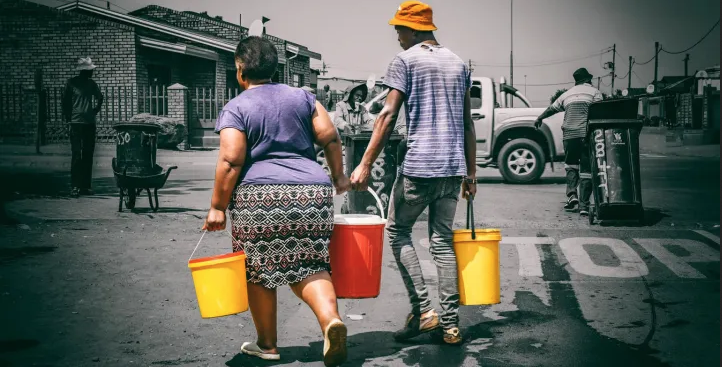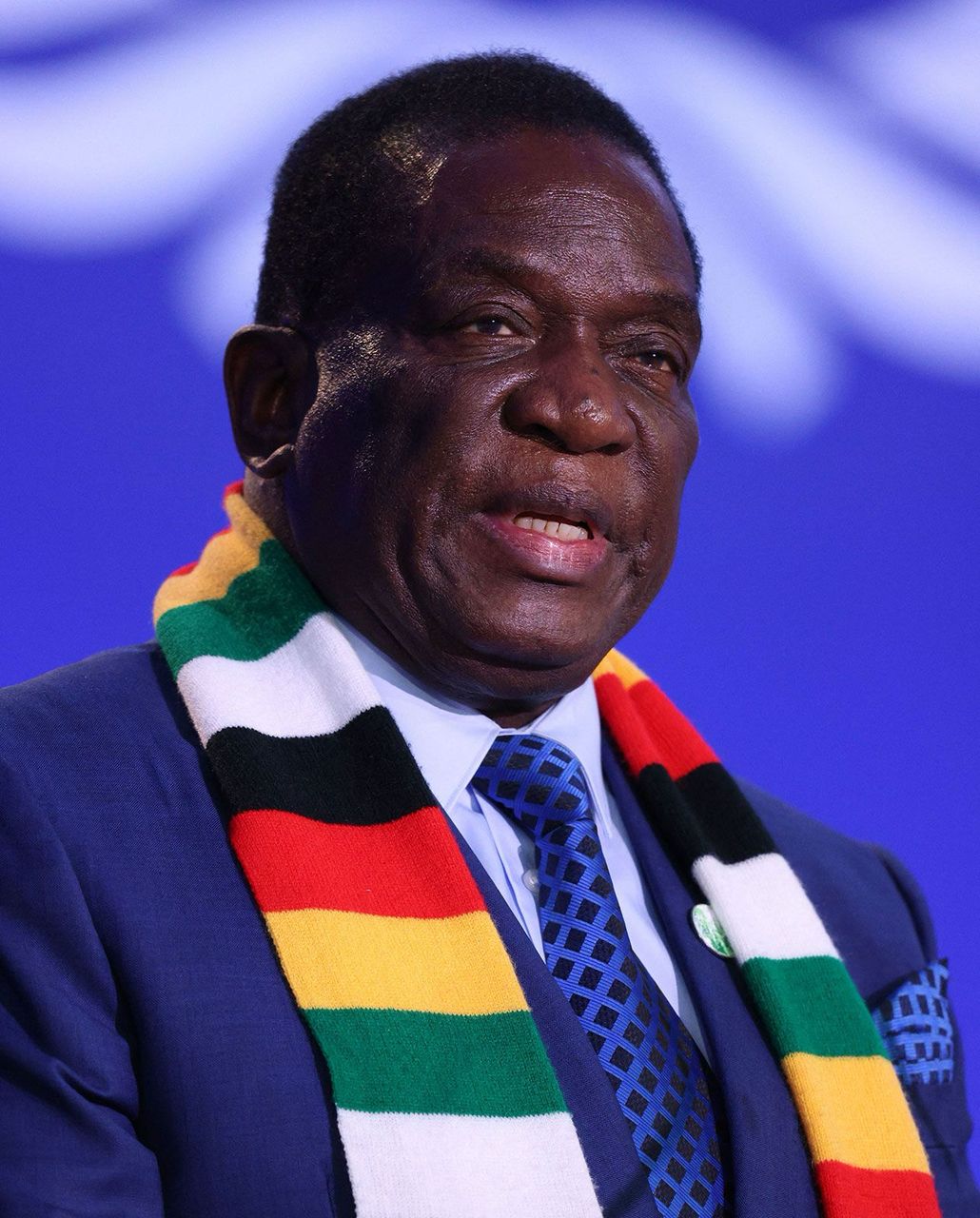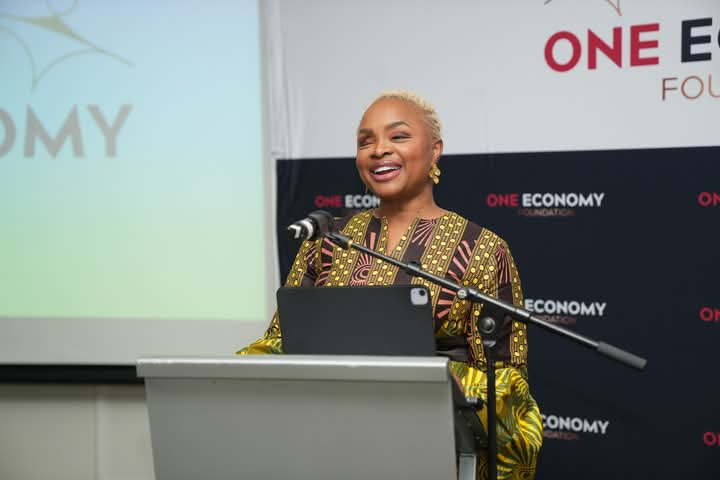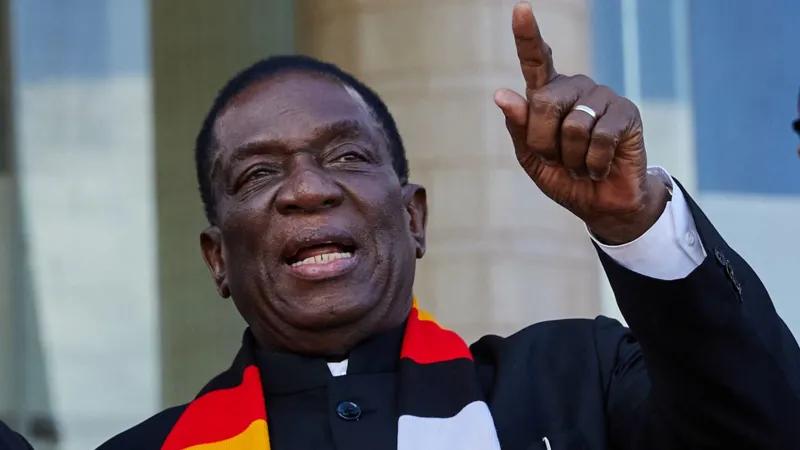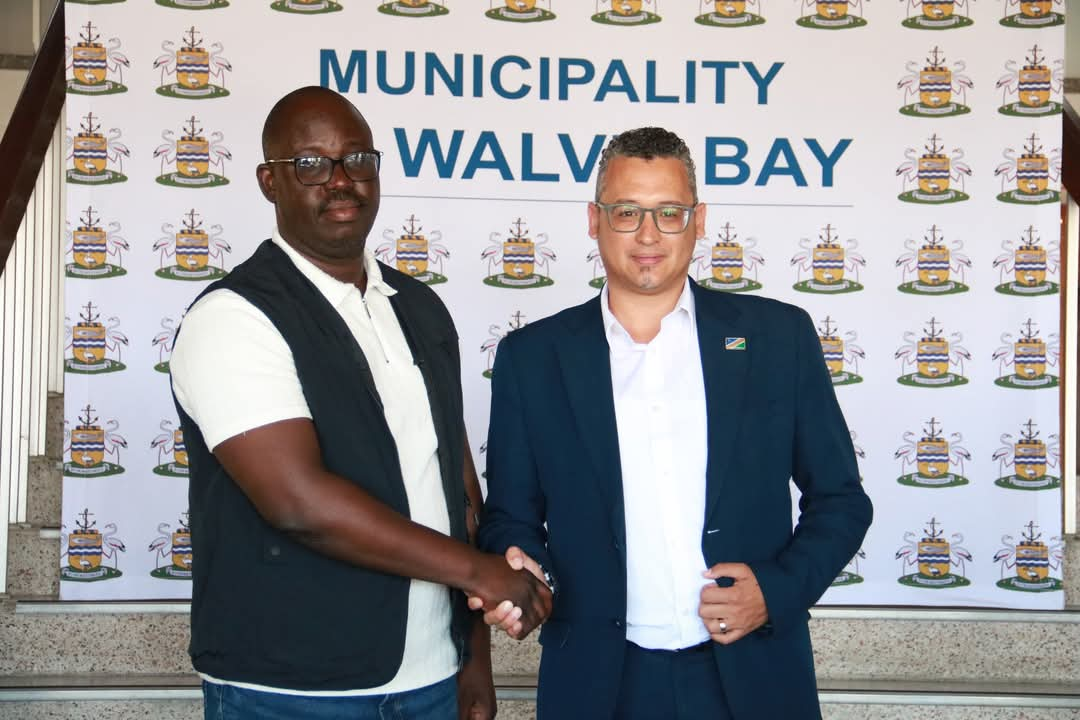A data investigation shows Johannesburg has already had 1,604 water cuts in October and 3,318 in September. The months-long investigation by Daily Maverick reveals how cadre deployment by the ANC and EFF is a key factor crashing Johannesburg’s water supply and raising the spectre of a system collapse.
his graphic of Johannesburg Water’s latest board shows that it has bloated and that cadre deployment by the ANC-EFF coalition, which controls the city, has taken place at non-executive and executive levels.

Dineo Majavu, a member of the Young Communist League national committee, is the chairperson. Majavu has no relevant experience for the role other than the fact that the SACP is in a governing alliance with the ANC. Kgaile Mogoye is a deployed member of the ANC Youth League with no relevant water experience. Julias Maputla, axed earlier in 2024, was also a direct party deployee.
As the graphic below shows, hundreds of thousands of Johannesburg residents are without water at any time, and political interference is a significant factor, according to a document tabled at the council by the utility. The water supply has become like the load shedding crisis since the advent of Johannesburg’s ruling coalition after the 2021 local government elections.
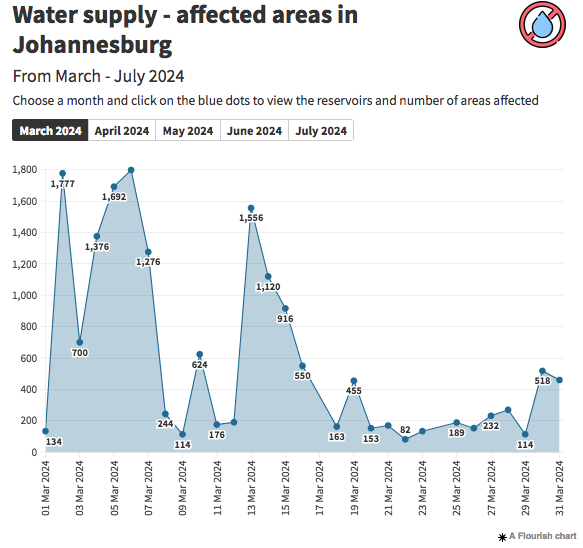
A Daily Maverick data investigation reveals that in October, there were 1,604 cuts in the first nine days of the month, an average of 178 areas without water per day. In September, there were 3,318 water cuts, an average of 110 areas or streets or properties without water per day.
A singer and secretary on the Johannesburg Water Board
The city is skirting Day Zero for the fourth time in a year, and councillors held emergency meetings with the utility’s officials on Friday, 11 October to fend off a provincial disaster. Half the reservoirs have leaks as a hot, dry summer looms for the city that is South Africa’s economic heartland.
On Saturday, Rand Water, the city’s bulk water supplier, said: “Unfortunately, the crisis we sought to prevent has now materialised. The water supply systems in Gauteng, including Rand Water reservoirs, are critically low, and the situation is anticipated to worsen with the ongoing heatwave. Water storage levels throughout Gauteng … have significantly declined due to excessive water withdrawals by municipalities, raising serious concerns.”
None of the Johannesburg Water Board members is a professional engineer. Each of the governing coalition partners of the council appears to have deployed cadres: among the members is a secretary and possibly a musician, Collen Sambo. The utility needs profiles of its board members as they change so quickly. Many of the board members do have degrees, but none in fields relevant to water, especially for a water system that is collapsing. The appointments provide job opportunities or direct contracts to politically connected companies, say specialists.
The ANC member of the mayoral committee (MMC) for infrastructure, Jack Sekwaila, did not comment on the rationale for the appointments for several months. News24 reported that he did not know about a water crisis in August.
The chart above of outages compiled by the Daily Maverick over months of monitoring cuts recorded by the city and residents shows thousands since April. This is not a normal water supply by any means.
“A board is critically important for strategic direction and support,” said global water specialist Professor Anthony Turton. “It is vital for risk mitigation and the viability and health of the organisation. This [water supply] is an existential crisis which could bring Gauteng to its knees.
“It’s a massive board but paper-thin on technical expertise. You need turnaround specialists, refurbishment specialists and those who know about asset life-cycle management.” (Asset life-cycle refers to specialists who know how to run old systems. Johannesburg Water pipelines and its network of reservoirs and plants are all past end-of-life.)
Fearful but brave whistle-blowers reach out
Early in 2024, a city official, in an encrypted message sent with a disappearing timer, told Daily Maverick that a senior Johannesburg ANC leader “is on a mission to totally take over the control of the entities of the CoJ [City of Johannesburg], ensuring his own people are appointed, even if it means by hook or crook. His targets are Pikitup, City Power and Joburg Water. The modus operandi is the same. He brings his people to the board as his share of the seats with other parties in the coalition government. He floods the board with yes-men and women to ensure no resistance to his decision-making.”
Khaya Koko reported in the Mail&Guardian that Johannesburg Water’s chief operations officer, Gugulethu Phakathi, was one of these appointments. She was previously the board chairperson and was parachuted in from the board to the C-suite. Phakathi is a built environment specialist with technical engineering qualifications, but no specific water experience.
The CFO, Kgaugelo Mahlaba, has a chequered past on Gauteng’s gambling board and possibly does not have the qualifications he claims — the utility says his appointment and qualifications were appropriately verified. Both these roles are essential to managing a water utility in such a crisis that hospitals like Rahima Moosa, as well as scores of schools, clinics and old-age homes, are suffering cuts afflicting the city’s most vulnerable people.
Several board members circulate across Gauteng’s enterprises, showing a network of political connections. Most non-fixed spending in the city and the province flows from the enterprises.
The Commission of Inquiry into State Capture found that ANC cadre deployment was the first step in grand corruption. In this placement system, corruption networks directed contracts to their companies at Eskom, Transnet, Prasa and Denel, the state-owned enterprises investigated by the inquiry.
Cadre deployment is illegal and unconstitutional
The commission’s chairperson, then Acting Chief Justice Raymond Zondo, said cadre deployment was unconstitutional and illegal. However, as the Johannesburg Water example shows, it is still standard political practice by the ANC in Gauteng and Johannesburg.
A senior water official aligned with the ANC said, “I think cadre deployment is still a big problem and bigger at the municipal level. The [party’s] national deployment committee was benign. Regional and local deployment committees are the ones to watch. These are much more forceful and instruct [rather than advise]. I wouldn’t be surprised and it will worsen the [water] situation.”
He said regulating national, provincial and municipal governments was important to make cadre deployment impossible and illegal. There are national laws in place, but cadre deployment remains endemic in the city and province. The ANC in Johannesburg is open about using utility board positions for comrades: for example, the party’s treasurer in the city is the chairperson of Pikitup, the troubled waste management enterprise.
The city won’t answer cadre questions
In its turnaround strategy tabled at the council, Johannesburg Water’s executives noted that unstable governance (the city has had six mayors and changes of municipal government in three years) leads to frequent changes at the board level, often linked to shifts in political coalitions within the city. The document criticised this lack of continuity, undermining the board’s effectiveness and accountability. It called for more independent governance, free from political interference, to ensure the water entity’s operational efficiency.
Johannesburg’s water supply is on a trajectory similar to SA’s electricity during the days of load shedding, as Daily Maverick reported here. Still, both the ANC and EFF in the city seem inured to its national impact.
Asked about the political appointments to the board, Johannesburg Water spokesperson Nombuso Shabalala said: “Please refer your questions to the City of Johannesburg, as the city is responsible for appointing the entity’s board.” ANC MMC Jack Sekwaila’s office did not respond to a request for comment after agreeing to take Daily Maverick’s questions.
Johannesburg Water’s full response
Ferial Haffajee: Johannesburg’s generalised water crisis appears to be in a fourth spike in 12 months, with hundreds of water cuts on any day due to what the utility calls “unplanned maintenance.” Is this correct?
Nombuso Shabalala: This is incorrect. Johannesburg Water has both planned and unplanned maintenance or water supply interruptions. Planned maintenance is communicated at least seven days in advance, allowing us or a contractor to conduct repairs or upgrades. These notifications are shared through various channels such as social media, ward councillor WhatsApp groups and SMS lines. Unplanned maintenance, like water pipe bursts, is communicated immediately. It may seem like there are more interruptions, but this has always been part of managing the city’s ageing infrastructure and backlog. Other factors, such as bulk supply interruptions and power outages, also play a role.
Q: Many people are reporting multiday water cuts. What is your data on this? It seems like a general complaint across usual (areas supplied by the Hursthill and Commando systems and reservoirs across the southwest of Johannesburg) and new areas.
A: Johannesburg Water does not intentionally implement water supply interruptions. Our goal is to provide continuous water access. However, we make configuration changes to systems by opening and closing valves to help build capacity in reservoirs overnight. This usually happens from 20:00 to 03:00 to maintain sufficient pressure during peak hours. Various issues, like leaks and illegal connections, increase demand on the system. Water systems take longer to recover than electricity systems, so it’s important to manage capacity efficiently.
Q: The utility attributes the water crisis to a spike in consumption, but could this also suggest an ongoing water system supply collapse?
A: No, that’s not accurate. The system is extensive, with over 12,000km of water pipelines and more than 11,700km of sewer pipelines. Some portions of the system are aged and need upgrades, but the system is not collapsing. The high consumption we’ve seen is due to factors like leaks, illegal connections and high usage from domestic, commercial and industrial activities.
Q: Does Johannesburg Water have a board capable of guiding it through this crisis? The new board doesn’t include a single qualified engineer.
A: Please direct this question to the City of Johannesburg, as they are responsible for appointing the entity’s board.
Q: Cadre deployment seems to be a pattern on the new board, with the chairperson, for example, being a leader in the Young Communist League and the ANC without water experience.
A: This question should also be referred to the City of Johannesburg, as the board appointments fall under their purview.
Stay informed with The Namibian – your source for credible journalism. Get in-depth reporting and opinions for
only N$85 a month. Invest in journalism, invest in democracy –
Subscribe Now!




